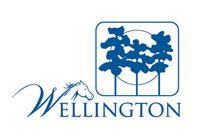Members of the Wellington Village Council asked the state this week to consider legislation that would regulate sober houses. Council members unanimously approved a resolution to support two bills pending in Tallahassee.
“It could assist municipalities in dealing with these issues,” Village Attorney Laurie Cohen said.
Sober houses have become a concern in Wellington in recent years, with residents coming out en masse earlier this month to ask the council to address the issue.
Cohen said the legislation would provide regulation for “sober houses” — facilities that house recovering addicts but do not necessarily provide services to the residents. Because addiction is a protected class under the Americans with Disabilities Act, Wellington has been unable to regulate or limit the facilities.
But two bills filed in the Florida Legislature would require registration of the facilities, along with other provisions, that could help municipalities gain some control.
“The legislation would enact a regulatory or registration scheme so that sober houses can be more closely monitored at a state level,” Cohen said. “The legislation provides that there would be an application that would require a number of things, including proof of screening backgrounds, the name of the sober house operator, the number of individuals served in the facility and a number of other things that don’t currently exist.”
The Palm Beach County League of Cities drafted the resolution, asking municipalities to urge state legislators to address the issue.
“There currently is no regulation or requirement for background screenings for these individuals,” Cohen said.
Councilwoman Anne Gerwig asked whether the bill would violate federal laws protecting those with disabilities. Cohen said she did not believe the bill would but noted that it probably will be challenged in court either way.
“I do have some concern about some of the requirements, because these individuals fall under a protected class, and when you begin to require registration and impose mandatory regulations, I think you open it up for a challenge,” Cohen said. “I think there could be an argument that it might violate, but I couldn’t say for certain.”
Gerwig then asked whether Wellington could face a legal challenge. “Would we bear any responsibility?” she asked.
Coates had the same question. “If this statute is passed, will we be targeted by the feds if they want to sue?”
Cohen said Wellington would not be responsible. “We’re not enacting the statute, the state is,” she said. “We are just supporting the legislation.”
Councilman Matt Willhite noted that the resolution would just support the filing and consideration of the bills to regulate sober houses, noting that they still would undergo eight weeks of review.
“It has eight weeks of scrutiny, amendments and changes to be done during the eight weeks of session,” he said. “All we’re doing is asking the legislature to enact something, and the governor to support something if it comes to his desk, to put some kind of oversight into this. It’s not trying to take away any rights.”
Regulations would benefit recovering addicts, Willhite noted.
“It’s for the safety and security of these occupants, too,” he said. “They need to make sure the operations that are being done are safe and secure. I think it’s a good thing for there to be some oversight.”
Coates asked whether there is a downside to approving the resolution, and Cohen said there is not.
“I think if [the legislation] is passed and actually upheld, it would be helpful to the municipalities and supplemental to whatever reasonable accommodation policies are adopted by the village,” Cohen said.
Willhite made a motion to approve the resolution, which passed unanimously.








